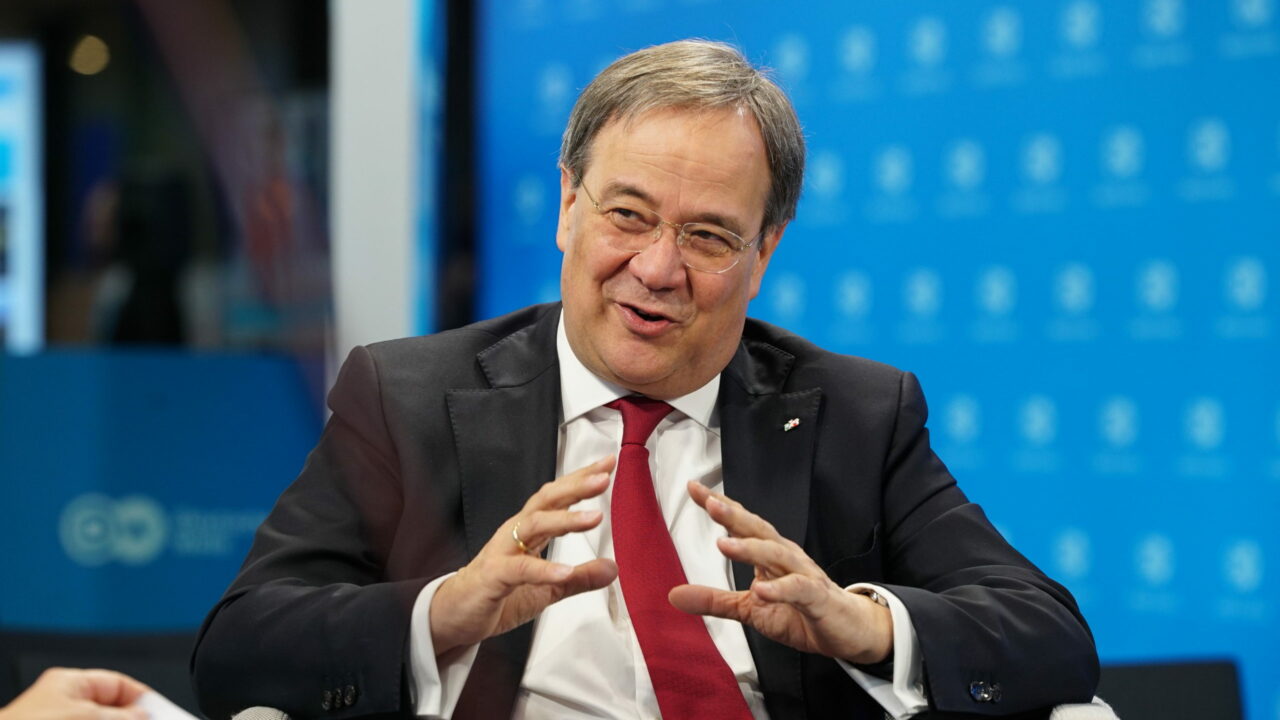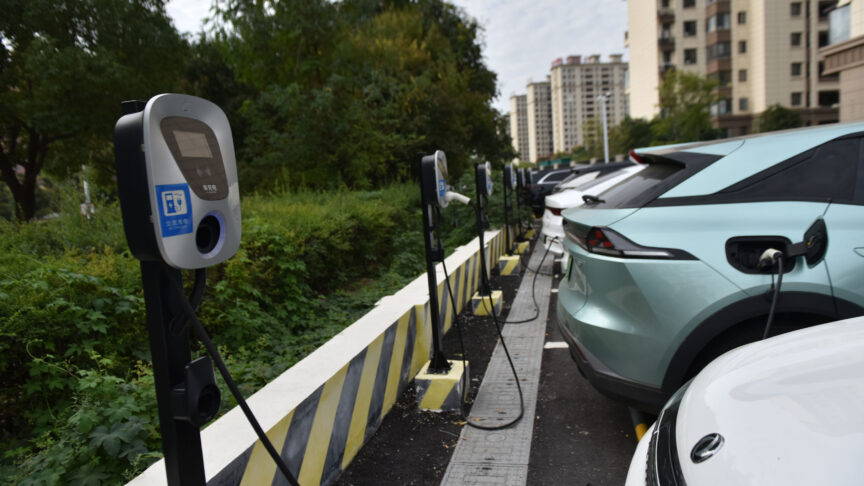Why a ‘Black-Green’ German government could finally create a coherent defence policy
The election of a new CDU party leader last weekend might be the first step towards a novel Black-Green coalition government – whose defence policy could be surprisingly visionary, if the parties are willing to work together
The Christian Democratic Union (CDU) has a new party leader. Last weekend, Armin Laschet was elected to lead the CDU, which together with the Christian Social Union (CSU) forms the German Christian democrats. Laschet, a former member of the European Parliament and the current minister-president of Germany’s largest Land won against two competitors: Friedrich Merz, who stands for economic and social conservatism, and Norbert Röttgen, a foreign policy expert (and co-chair of the European Council on Foreign Relations) who ran on a vision of modernising the CDU. Of the three, Laschet, an associate of Chancellor Angela Merkel, embodied continuity most clearly.
It is not certain that Laschet will become the CDU/CSU’s chancellor candidate in the federal election scheduled for September this year – a possible competitor is Markus Söder from the Bavarian CSU. However, there is now a good chance that, following the vote, Germany’s federal government will be formed for the first time by the CDU/CSU and the Green Party. Such a ‘Black-Green’ coalition, which has proven to be mostly successful on the regional level, would have been extremely difficult to imagine with Merz in charge.
A lot could happen before then – the CDU/CSU is certain to lose some of its Merkel-linked support the moment it announces its chancellor candidate. And it remains to be seen whether the Greens will keep up the high level of public support they currently enjoy for the next nine months. But, for now, a Black-Green coalition appears to be the most likely outcome. If this comes to pass, it would be something truly new: until recently, a combination of the conservative CDU/CSU and the left-leaning Greens was out of the question, for reasons of both politics and electoral arithmetic.
What could such a coalition mean for Germany? The optimist in me wants to believe that it would create new opportunities in an area in which the two parties seem particularly at odds: Germany’s defence policy.
The reasons why German governments have struggled with defence questions – from a difficult history with the military to a comparatively pacifist general population – have been discussed extensively. But how could a Black-Green coalition, of all things, improve this situation? After all, the Greens partly developed out of the peace movement of the 1970s, and they oppose most of the CDU’s views on military and defence. The Greens want to introduce highly restrictive arms export rules, and are critical of what they see as the “militarisation” of the European Union.
There are three reasons to be optimistic. Firstly, the bar is low. It would be difficult for a new coalition to do worse than the current one. For the last few years, the CDU/CSU and its current coalition partner, the Social Democratic Party, have been at loggerheads with each other, especially over defence questions. Merkel, for all her successes, never adopted a strong profile on defence questions. In particular, the ruling coalition has blocked or put off decisions on military acquisitions – such as those on the aircraft to replace the Tornado, and on armed drones – with grave military and financial consequences. Of course, the Greens are unlikely to rubber-stamp these acquisitions. However, they may at least be willing to discuss such issues, make some compromises, and take decisions. On several acquisition decisions, the current coalition’s commitment to kicking the can down the road has put Germany in the worst possible position.
A cooperation agreement between the CDU/CSU and the Greens could be particularly fruitful because, due to their different traditions and views, the two parties complement each other in both style and substance.
Secondly, and related to this, a cooperation agreement between the CDU/CSU and the Greens could be particularly fruitful because, due to their different traditions and views, the two parties complement each other in both style and substance. The Greens could push the CDU to ease its fixation on the status quo and to start formulating long-term visions, the absence of which could prove problematic in a changing world. And the CDU may help the Greens turn some of their idealistic visions into something workable. An example of where such a collaboration could be fruitful is on the issue of Germany’s participation in NATO nuclear sharing, which the CDU/CSU supports and the Greens oppose. Arguably, the Greens’ plan to abandon this policy as soon as possible would be politically and militarily dangerous (one might say catastrophic). However, the CDU/CSU’s unquestioning support for stationing US nuclear weapons in Germany is not a viable long-term strategy either, as the policy has not made military sense for a long time. A Black-Green coalition could come up with a solution that would not unilaterally undermine NATO.
Finally and most importantly, the two parties would collectively embody “the German view” on defence questions more than any other coalition. If any coalition can come up with a vision for Germany’s foreign and defence policy that may last longer than a few months, it is this one. A more politically aligned coalition may find it easier to put forward a coherent vision, but a Black-Green agreement would have greater legitimacy than the alternatives. Together, the CDU/CSU and the Greens represent most Germans’ approach to defence: sceptical of military operations, supportive of non-military solutions, and focused on humanitarian issues, but eager to be good allies to other Europeans and the United States.
A Black-Green coalition is unlikely to lead to Germany’s “normalisation” in the sense of it becoming more like France or the United Kingdom in its strategic culture. But combining the conservatives’ ideas about transatlanticism, support for the military, and general pragmatism with the Greens’ caution about – but not total rejection of – military operations and more visionary ideas could result in a truly German rethinking of what an effective defence policy for the twenty-first century should look like. Despite their historical links to the peace movement, the Greens are not pacifists. They have shown an ability to adopt pragmatic solutions when necessary, especially for humanitarian reasons – as was the case when they supported NATO’s Kosovo operations in 1999. Admittedly, this is the optimistic take. One could equally predict that a Black-Green coalition would spell another four years of defence-policy deadlock. But, after years of stagnation, any change is welcome. If both partners approach a coalition agreement with an open mind, it might yield surprising results.
The European Council on Foreign Relations does not take collective positions. ECFR publications only represent the views of their individual authors.



